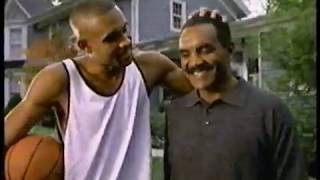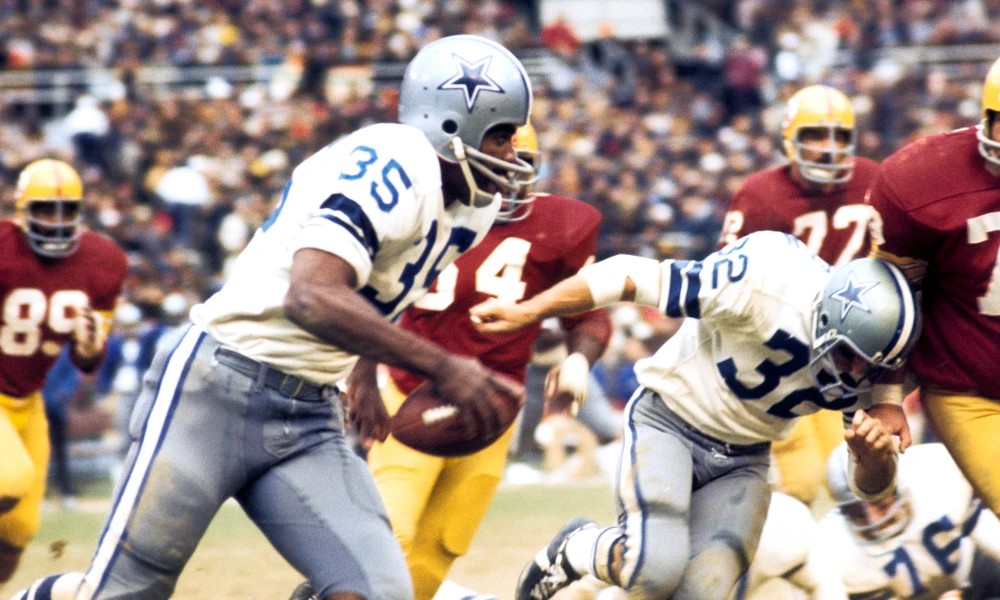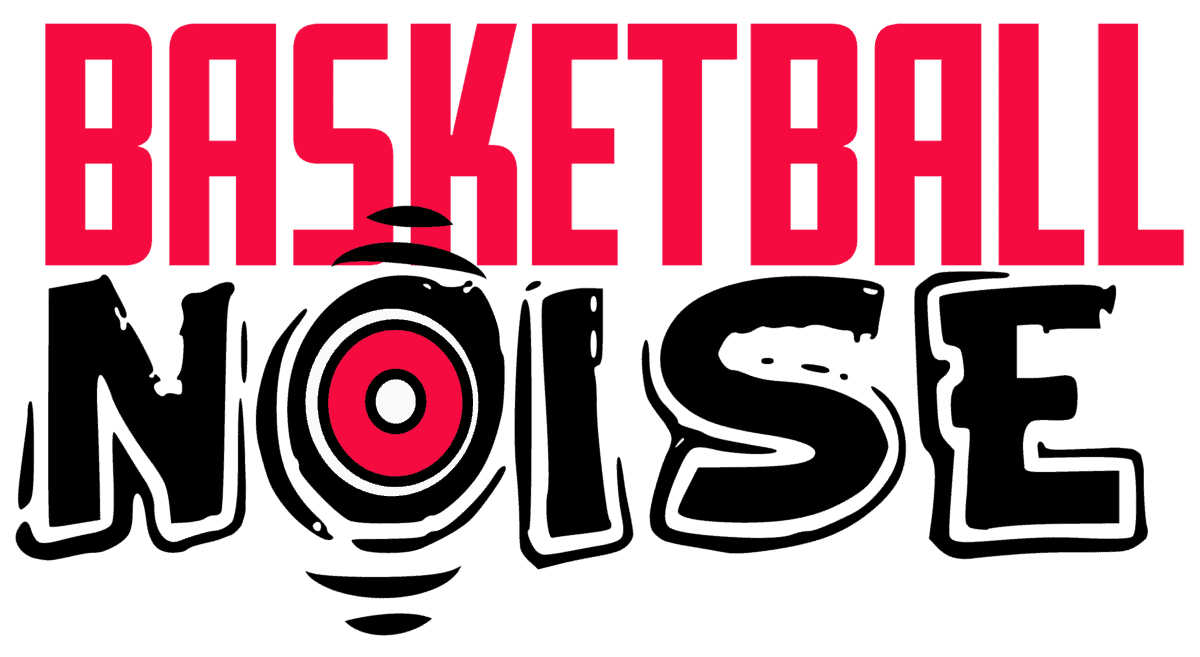NBA fans will certainly know who Grant Hill is. The former Piston, Sun and Clipper is one of the greatest players in NBA history whose career was derailed by serious injury. But what you might not realise is that Grant Hill is not the first professional athlete in his family.
Who is Grant Hill’s father? Grant Hill’s father is former NFL running back Calvin Hill. He played in the NFL for twelve seasons across three different teams, as well as one season in the World Football League.

Calvin Hill is not quite as famous as his son despite a stellar NFL career. Hill began playing sports at a very young age, growing up in Baltimore Maryland. At a young age, he excelled in football, basketball, baseball and track and field. All of this promise meant he was awarded a scholarship to Riverdale Country School in New York.
Hill quickly became a talented prospect as the quarterback for an undefeated team. He was also an honours student through secondary school, which led to an offer from Yale. Hill was impressed by the school’s massive stadium during a visit. But he was not seen as a quarterback for Yale.
On the second day of practice, Hill was moved to line-backer mainly due to his 6ft 4in stature. After four days of playing defence, he was moved again, this time to running back which would be a much more successful move.
During his time at Yale, Hill developed a brilliant partnership with Brian Dowling. Hill sometimes even stepped into the quarterback role, throwing six touchdowns at Yale. The pair’s crowning season was 1968. Yale went undefeated, ending the season with a draw to Harvard.
Hill would pick up significant recognition during his time at Yale. He was All-Ivy League in 1967 and 1968 and it began to get him some recognition from NFL teams as Hill entered the 1969 draft. But his stock was not massively high as elite colleges like Yale very rarely produced high-level NFL players.
So it was quite surprising when Hill was selected 24th overall by the Dallas Cowboys. The Cowboys saw his potential but more as an athlete. Throughout his rookie training camp, Hill was tried at different positions including tight end and linebacker. Luckily for Hill, opportunities at running back began to open up.

The retirement of Don Perkins and injuries to others meant that the Cowboys essentially had to start Hill in the backfield as they did not have any other options. It turned out to be a huge stroke of luck for the Cowboys. After a solid debut, Hill had a brilliant second week, rushing for 138 yards and two touchdowns.
Hill’s rookie season continued to look like it would break multiple records. He rushed for 807 yards in the first nine games, but he broke a bone in his foot in a 41-28 win over the Washington Redskins. After missing one game, he still picked up a total of 942 yards in his rookie season, enough for the NFL Offensive Rookie of the Year award as well as being First-team All-Pro and a Pro Bowl trip in his first season.
Sadly for Hill, his opportunities began to dry up over the next couple of seasons. It was because of a variety of reasons, with injury being primary. Hill was hospitalised from an infected blister that kept him in hospital for a month. He started the next season positively but tore his ACL against the Giants.
In the offseason after his foot injury, the Cowboys had drafted running back Duane Thomas in the first round of the 1970 NFL draft as the team was not confident that he could properly recover from injuries. Thomas was the starter when the Cowboys won the 1971 SuperBowl, with Hill limited to just seven carries in the game.
Despite the success, the Cowboys traded away Thomas in the 1972 season. This turned out to be a great move as Hill finally got healthy. He became the first Cowboys running back to rush for more than 1000 yards in a season and his pass-catching helped Hill to 1400 total yards from scrimmage.
He was even better in the next season, racking up 1142 rushing yards and finishing with the second-most scrimmage yards in the NFL. Sadly for Hill, he could not finish the season without injury. A separated shoulder kept him out of the NFC championship game which the Cowboys lost.
Sadly for Hill, injuries continued to plague his career as the Cowboys missed the playoffs the following season. Despite all of this success with the Cowboys, Hill became one of the star NFL players to leave the league to join the newly formed World Football League, joining The
Hawaiian, but tore his MCL in week 3.
This injury turned out to be the one that ended his time as a star running back. The WFL folded after one season and Hill returned to the NFL, controversially joining the Cowboy’s arch-rivals the Washington Redskins. The constant injuries meant he was a shell of the player he used to be.
After a couple of seasons with Washington, he would move to Cleveland for the 1978 season where he was again the back-up. Hill had retired just before his move to Cleveland with the Browns convincing him to unretire. Hill did retire at the end of the 1981 season, finishing his career with 8944 scrimmage yards and 65 touchdowns across 12 seasons.
In his post-playing career, Hill sits on the board of several organisations and still works for the Dallas Cowboys as a consultant specialising in troubled players. He has committed a lot of his time to addressing the issue of drugs and alcohol in sports, working with the Browns on exactly that issue.
One of the most incredible parts of his life is his Rookie Of The Year award. Winning it in 1969, Hill watched proudly as his son Grant shared the Co-Rookie Of The Year award in the NBA. A brilliant achievement for a great sporting family.
